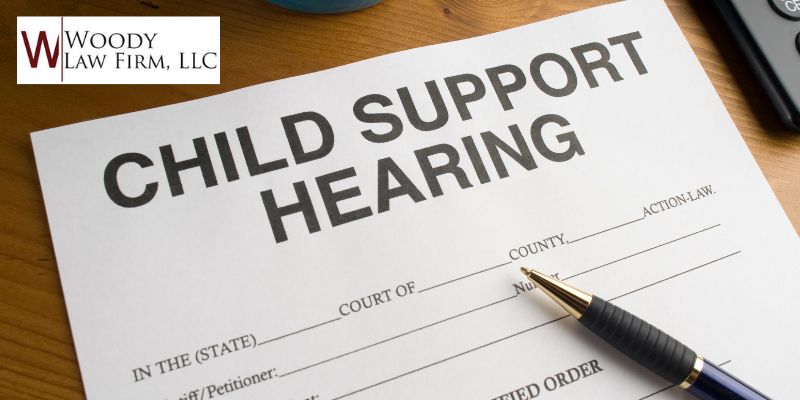Arapahoe Property Division Attorney
Arapahoe Property Division Lawyer
Divorce is never only about ending a marriage. It’s also about building your financial foundation back up and getting a fair and secure future. Understanding how your property, assets, and debt will be divided can be an agonizing experience. Residents of Arapahoe County understand that divorce cases involve numerous complex issues. An experienced Arapahoe property division attorney can be a strong advocate in your corner during every step of the process.

Hire a Property Division Attorney
Kinnett & Cordes concentrates exclusively on family law mediation and litigation. We are able to give you and your family law matters the in-depth knowledge and personal service you deserve. Our lawyers have been recognized by the Supreme Court of the State of Colorado for pro bono achievement and by the American Institute of Family Law Attorneys for client satisfaction.
We believe in offering affordable representation because no one should be forced to go without legal advice when important rights are on the line. We are proud to receive referrals for pro bono matters from Metro Volunteer Lawyers and the Colorado Appellate Pro Bono Program. If you reside in Arapahoe County, we often appear in the Arapahoe County District Court, where property division cases are tried.
What Is Property Division?
In 2022, there were 2.9 divorces per 1,000 people in Colorado. This is a slightly higher rate than the national average. In 2022, there were 672,502 divorces in the U.S., with a rate of 2.4 per 1,000 people.
Property division concerns the fair distribution of property between spouses who are separating or who have already separated. In some cases, property division will also cover debts as well as assets. Property division proceedings will often begin with classifying property as either marital or separate, then assigning a value to the various properties, and lastly dividing them between the spouses.
Without legal guidance, it is easy to misclassify property, or fail to consider valuable assets, or the importance of debts. An experienced Arapahoe property division lawyer can help ensure that all property is listed and valued correctly.
Property Division Laws in Colorado
Colorado is an equitable distribution state. This means the court will divide marital property in a manner it deems fair. Note that fair doesn’t necessarily mean equal. There are a variety of factors the court will consider when determining what is fair in your case.
Since the law is written in a way that gives the court a lot of discretion, it is important to have an experienced asset lawyer on your side fighting for a fair result in your case.
Community vs. Separate Property
In Colorado, as with most states, property is broken up into two categories. They are community, commonly called marital property, and separate property.
Community property is generally property that was acquired by both spouses during the marriage. This covers mostly all contributions, assets, income, and debts, regardless of whose name is on the property.
Separate property, on the other hand, is property that was acquired before the marriage or after separation. This can also include items such as gifts and inheritances given solely to one spouse. Additionally, if something was acquired by one spouse that would negatively impact the other, it may not be included in community debts, such as gambling debts or debts acquired from having an affair.
Nevertheless, separate property can be commingled with marital property, such as if you use an inheritance to buy a marital home. As a misclassification of property can lead to an unjust property division, an attorney can work to have the property properly classified so that you keep what you are entitled to.
Assets Subject to Property Division
When getting a divorce in Arapahoe County, there are several assets that can be up for property division. Some of these include:
- Real estate. This includes homes, rental property, or any other types of land.
- Retirement accounts. This can include pensions and 401 (k) s. This can also include personal retirement accounts that were funded throughout the marriage.
- Financial accounts, such as bank accounts, stocks, and bonds.
- Vehicles. This can include cars, SUVs, and boats.
- Business dealings, including ownership of a business.
- Personal property. This can include furniture, jewelry, and electronics.
All these assets must be properly valued in order to reach an equitable resolution. Some items will require the use of appraisers or financial professionals to determine an accurate valuation. This is particularly true of real estate and business interests.
Debts in Property Division
Just as assets are subject to division, debts acquired in the marriage are also subject to property division. Some of these include:
- Mortgages. This includes loans connected to a marital home as well as other properties, such as vacation homes.
- Credit card balances. If the credit cards were used during the marriage, this can be subject to division regardless of whose name is on the account.
- Student loans. These can be tricky. Depending on when they were taken out, these may be classified as marital or separate.
- Vehicle loans. If certain vehicles were considered marital assets, their loans can also be considered a part of marital debt.
Colorado law divides debts equitably, but equitable does not necessarily mean equal. In determining equitable distribution, courts often look to who benefited from the debt, who is more capable of paying it, and whether it was accrued responsibly. Irresponsible debt may not be subject to division, such as debt acquired to fund addictive behaviors.
How Fairness Is Determined
Fair does not always mean equal. For instance, one spouse might get to keep the family home, while the other gets a greater share of a retirement account to balance things out. In determining what is fair, the court looks at not only the present assets and debts, but also the future financial prospects of each spouse.
Courts consider earning potential and age, along with health status, and evaluate both financial and non-financial contributions when making property division decisions. The court might consider contributions made by a spouse who sacrificed career progress to take care of children and manage household tasks during property division.
Arapahoe Property Division Attorney | Asset Lawyer
If you are going through a divorce, hire a property division attorney today to protect your assets and debts. Kinnett & Cordes can help you fight for what is fair. Contact us today to get started and let us put our knowledge and experience to work for you.
Schedule A Consultation
Fields Marked With An “*” Are Required
"*" indicates required fields



